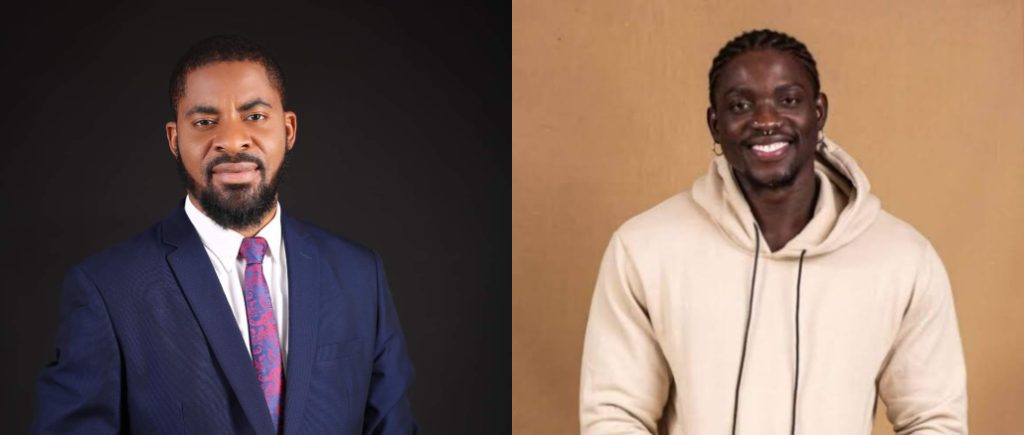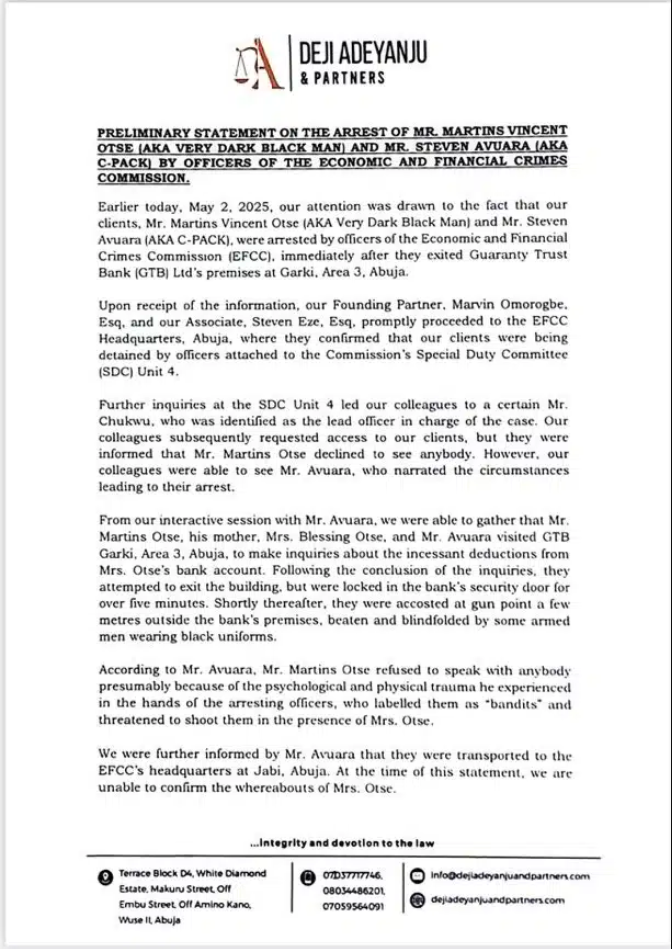
Martins Vincent Otse, also known as Very Zachman, attorney for the famous online figure, claimed that EFCC officials called his client a “robber” and caused physical harm to him in the controversial arrest.
This information is shared in a statement on the social media platform X (formerly Twitter), an overview of the arrest and alleged abuse.
According to the statements of “Abuse of the Economic and Financial Crime Commission Officers, regarding Mr. Martins Vincent Otse (aka Very Black Black) and Mr. Steven Avuara (aka C-pack), the incident took place on May 2, 2025, his mother was Mr. Otse on May 2, 2025. Abuja asked “continuous deductions of Mrs. Otse’s bank account”.
After completing the inquiry, the three tried to exit the bank, but were “locked to the bank’s security gate for more than five minutes.”
After stepping outside, they reportedly “put a gun on the muzzle a few meters outside the bank house and were beaten and blindfolded by some armed men in black uniforms.”
During the arrest, the statement claimed that during the arrest, “the officers marked them as ‘bandits’ and threatened to fire the shot in the presence of Mrs. Otse.”
Upon learning of the incident, Adeyanju’s colleagues Marvin Omorogbe and Steven Eze visited the EFCC headquarters, where they confirmed that both Otse and Avuara were detained by officials of the Commission’s Special Tax Commission (SDC) Unit 4.”
Although they were denied access to very Wackerman who “refuse to see anyone”, they were able to talk to Avuara who provided an account of the incident.
The efforts to determine the basis of Avuara’s detention were unsuccessful.
EFCC officials reportedly declined to disclose allegations against him.
Instead, they targeted “his worship, Njideka Iloanya-duru (MRS), Chief Magistrate II, Wuse District 2, and the OTSE allegedly issued an arrest warrant, which was accused of cyber-stalking.
The statement said that despite the “repeated request,” the officer tried to ask Avila without clarifying any allegations against him. The lawyers eventually exited the trial room and refused to be part of a process in which they believed that they were violating Avuara’s “constitutional rights were told of the allegations against him”.
The statement concluded: “When we continue to engage with the EFCC on this issue, we call on the Committee to respect the rights guaranteed by our clients’ constitutionally.”

